Young people with lived experience in foster care must have a seat at the table to transform laws and policies that shape their own lives.
What is Public Policy?
- Public Policy is what the government and elected officials decided to do or not do about an issue.
- Public Policy involves making choices on whether and how to address problems that affect society
- Key aspects of public policy include:
- Identifying issues that need attention
- Proposing potential solutions
- Implementing and evaluating decided actions
What is Legislation?
- Legislation refers to laws enacted by a lawmaking body
- At the federal level, legislation involves U.S. Congress (the Senate and the House of Representatives) passing bills.
- FosterClub advocates for legislation that empowers youth in care
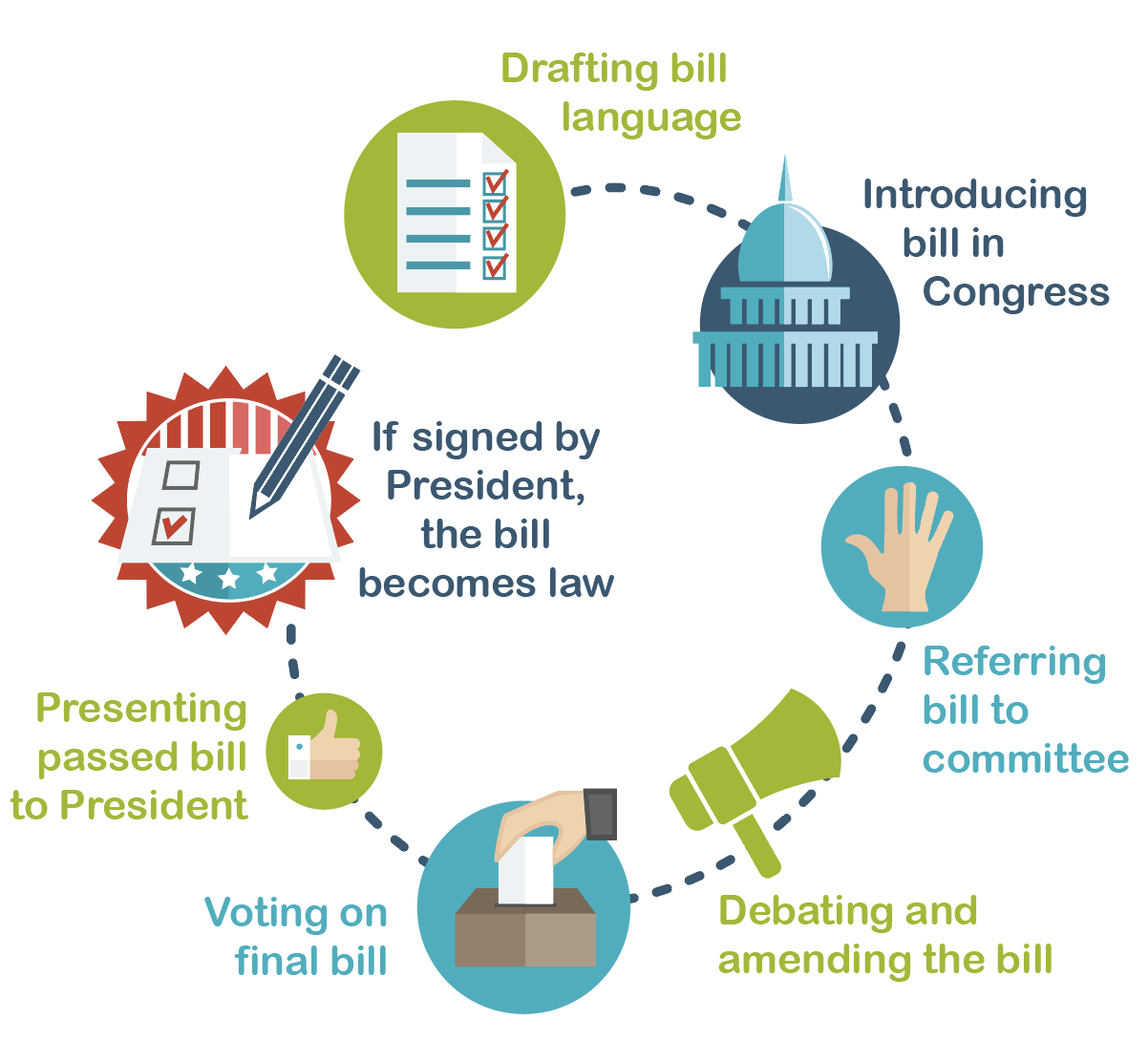
Nothing About Us Without Us
We believe that when the System listens to young people with lived experience in foster care, it does better. We refer to the young people who step up to inform public policy and legistlation as Lived Experience Leaders — or LEx Leaders, for short.
Timeline of Major Child Welfare Legislation.
Below, we've provided a quick summary of major legislation that impact the foster care system, highlighting items that might be most interesting to young people in the FosterClub network who are interested in advocating for change.
This is when FosterClub was born. (2000)
”FosterClub has made me CURIOUS. After my AllStar Internship and first Board Meeting, I developed a deep curiosity for Policy, Partnerships, and Marketing. I constantly put myself in a mindset of curiosity and environment of learning all due to the conversations and experiences with FosterClubs staff, Board of Directors, partners, and advocates.”
— Cody, past FosterClub Intern and Board Member
Recent Public Policy News
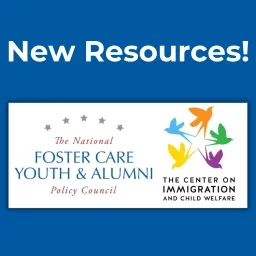
Council Hosts Webinar Featuring New Resources to Support Immigrant Youth in Foster Care!
This week, the Council partnered with the Center on Immigration and Child Welfare (CICW) to host a webinar about best practices for supporting immigrant youth in foster care! We drew from our 3 priority statements from Supporting Immigrant Youth & Children in Foster Care, and heard from the CICW about common barriers faced in supporting immigrant youth in foster care...
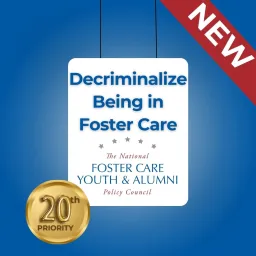
Council Releases 20th Priority: Decriminalize Being in Foster Care!
“From the moment a child is removed from their home, they often encounter their first interaction with law enforcement, setting a troubling precedent. As foster youth navigate these institutions, they encounter individuals who believe punitive consequences are an acceptable response to normal childhood and trauma-induced behaviors. This culture erodes the cycle of attachment and severs connection and self-development. The foster...
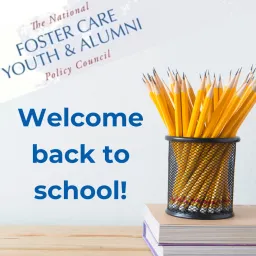
Welcome Back to School from the Council!
Over the last 10 years, the Council has put equitable educational opportunities for foster youth forward in many of our priority statements. We firmly believe that education provides young people in foster care critical connections and tools they need to thrive as adults. “When I started high school, my life was in a downward spiral. I was fortunate enough to...

FosterClub commends introduction of bipartisan resolution on Foster Youth Rights
In June, Congressman Emmanuel Cleaver III (D-MO-05) and Congressman Don Bacon (R-NE-02) introduced a bipartisan resolution on rights for foster youth. The resolution outlines 10 key areas of foster youth rights: Right to receive an education and remain in their original school, if desired; Right to participate in extracurricular, cultural, and social activities; Right to receive needed health services, including...
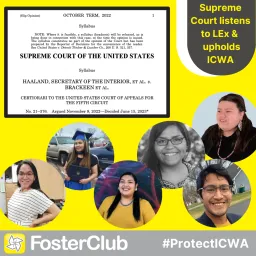
Supreme Court listens to Lived Experience Leaders & upholds ICWA
In a noteworthy legal ruling today, the Supreme Court upheld the Indian Child Welfare Act (ICWA) in the case of Haaland v. Brackeen. This 7-2 decision confirms ICWA's constitutional validity, ensuring that state agencies and child welfare organizations are bound by its provisions. The full details of the opinion can be accessed here. It's with immense pride that we acknowledge...
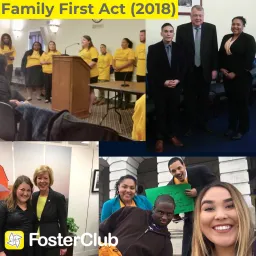
Family First Act Celebrates FIVE Years!
On February 9th, 2018, the Family First Act (FFA) was signed into law. This February, we celebrate FIVE YEARS of the FFA serving youth across the country. As we celebrate the five year anniversary of the Family Fisrt Act, FosterClub looks back at how hundreds of Lived Experience Leaders (LEx) came together to promote and support the passing of the...
